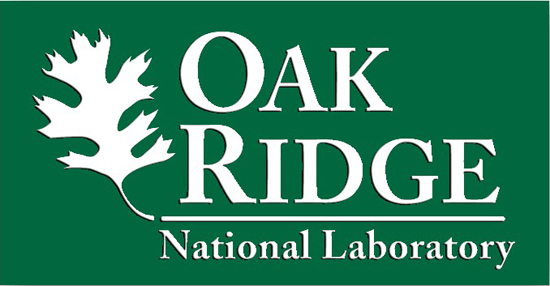
Universities Roll Out New Data Science Programs

(Syda Productions/Shutterstock)
College grads looking to take the next step in their data science careers will have several new graduate-level data science programs to enroll in this fall, including a new Master’s of Applied Data Science at Syracuse University, a new Doctorate of Data Science at the University of Tennessee, and a new certificate program at Rutgers.
Demand from students for graduate-level data science degrees, as well as demand from companies for more skilled data scientists to crunch big data, led Syracuse University leaders to create the new 18-month, multi-disciplinary program, says Associate Professor Jeff Saltz.
“There’s clearly a need and an interest,” Saltz tells Datanami. “The student interest was fairly substantial. We listened to the students, we listened to industry professionals who were trying to hire these folks, and basically then came up with this program.”
Syracuse previously offered a five-course certificate of advanced studies in data science. Interest in that online program was immense, and led the university to take the next step with the new program, which will be offered either online or through in-classroom instruction.
Other universities offer graduate level research courses that delve into the theory behind machine learning algorithms, but Syracuse’s program will focus on giving students real-world skills needed to solve data problems, as opposed to academic research, says Saltz, who led the creation of the new master’s-level program.
“Our focus isn’t to build the next greatest neural network,” he says. “Our focus is to how to work on real business problems or organizational problems. We cover the end-to-end process and being able to communicate effectively with your peers, with senior management, and being able to correct and store data appreciate, and what’s the right analytic tools to solve a problem.”
Students will get a heavy dose of R and Python, and some instruction on how to use big data technologies, such as the Hadoop stack and visualization tools like Tableau, Saltz says. They’ll also be taught how to think about big data problems, how to determine which data is important, and how to know if your solution is actually working.
“If you just say ‘We have this great result,’ if you can’t give that person an intuitive understanding of why that is, that’s a big problem,” Salts says.
The program is jointly administered by the university’s School of Information Studies (also known as the “iSchool”) and the School of Management. About 15 to 18 professors and associate professors will be involved, as well as some adjunct instructors. Enrollment is currently open for the fall semester.
Students will also begin a new doctorate-level program in data science engineering this fall at the University of Tennessee. The new program is the result of a partnership between the University of Tennessee-Knoxville (UTK) and the Department of Energy’s Oak Ridge National Laboratory (ORNL), and is focused on finding scientific applications for new data science approaches.
 Representatives for ORNL say the new program is needed to close a looming skills gap in data science and engineering (DSE). The new DSE program is modeled after an existing Energy Science and Engineering (ESE) doctorate program, which has awarded 25 PhD.s and has more than 125 students currently enrolled.
Representatives for ORNL say the new program is needed to close a looming skills gap in data science and engineering (DSE). The new DSE program is modeled after an existing Energy Science and Engineering (ESE) doctorate program, which has awarded 25 PhD.s and has more than 125 students currently enrolled.
“The ESE program has been a big success and a new model for interdisciplinary graduate education linking the resources of a major university and a national laboratory,” says Lee Riedinger, the director of the Bredesen Center for Interdisciplinary Research and Graduate Education, which is overseeing the new program. “The new DSE program expands this model to another area of national need and is expected to continue the tradition of excellence within the Bredesen Center, ORNL and UT.”
The DSE program will focus on finding new ways to crunch data in seven domains: health and biological sciences; advanced manufacturing; materials science; environmental and climate science; transportation science; national security; and urban systems science.
The program will be housed at the Bredesen Center on the UTK campus, and will accept 10 to 15 students for the fall semester. The goal is to have upwards of 100 students enrolled in the program at any given time. Tuition will be about $30,000 per year, an amount that will be softened for some students through tuition waivers and stipends.
Meanwhile, Rutgers University has rolled out a new Big Data Certificate Program that can count as credit toward getting a Master’s degree at the New Jersey institution.
The four-day program revolves around eight learning modules. The class starts off with the foundation of big data and the infrastructure that’s used, and goes on to cover related topics, like analytical platforms, security, managing teams, machine learning, global operations, and developing proposals. Students are also required to complete a “capstone” project
Students who complete all eight modules and pass an optional exam, are eligible to receive three elective graduate credits towards a Masters in Business & Science degree at Rutgers. The cost is $4,995, and the next program starts September 18.
Related Items:
Data Analytics in Higher Education: A Mixed Bag
Six Big Name Schools with Big Data Programs
Data Science Education Evolves to Meet Surging Demand
[wpsr_share_icons icons="twitter,facebook,linkedin,reddit,email" icon_size="40px" icon_bg_color="" icon_shape="circle" hover_effect="opacity" sm_screen_width="768" lg_screen_action="show" sm_screen_action="show" page_url="https://www.bigdatawire.com/2017/05/23/universities-roll-new-data-science-programs/" page_title="Universities Roll Out New Data Science Programs" page_excerpt="
College grads looking to take the next step in their data science careers will have several new graduate-level data science programs to enroll in this fall, including a new Master’s of Applied Data Science at Syracuse University, a new Doctorate of Data Science at the University of Tennessee, and a new certificate program at Rutgers. Read more…
" share_counter=""]


























